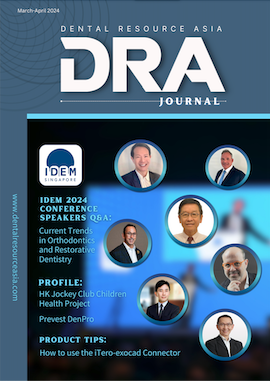Australia: A new curriculum for dental students on providing culturally safe oral health care to the Aboriginal and Torres Strait Islander communities has been launched.
Commissioned by the Australasian Council of Dental Schools, the initiative is led by University of Melbourne Professor Julie Satur from the Melbourne Dental School.
The new curriculum was unveiled at a recent International Association of Dental Research ANZ meeting. According to a report by the Australian Dental Association (ADA), it aims to “contribute to the development of graduate dental practitioners who have the appropriate knowledge, skills and practice to provide culturally safe oral health care.”
 Click to Visit website of India's Leading Manufacturer of World Class Dental Materials, Exported to 90+ Countries.
Click to Visit website of India's Leading Manufacturer of World Class Dental Materials, Exported to 90+ Countries.
Critical self-reflection needed
Based on key areas of culturally safe practice underpinned by the expertise of Aboriginal and Torres Strait Islander people, the curriculum is said to be flexible in meeting the different structures and needs of dental programs across Australia.
“Cultural safety is a spirit of practice taking into account Indigenous peoples’ strong connections to Country. We are asking all dental practitioners to undertake critical self-reflection to address identified bias, assumptions and racism,” said Josh Cubillo, Indigenous Health Leadership Coordinator at the Melbourne Poche Centre for Indigenous Health.
“Cultural safety leads to cultural respect and a feeling of security for the patient. Acknowledging Indigenous ways of knowing, being and doing is the biggest step and this new curriculum is a start.”
It’s about time!
Said Prof Satur, who believes the new curriculum is long overdue: “We know dental care is expensive and oral health disparities between Indigenous and non-Indigenous Australians are significant. We also know that poor oral health has multiple effects on other aspects of health.”
“It is time we changed our approaches to managing oral health with Indigenous peoples and we believe the new curriculum is a step towards achieving better outcomes.”
The new curriculum will be implemented over the next five years in response to new accreditation standards established by the Australian Health Practitioner Regulation Authority and the Dental Board of Australia in January 2021.
The information and viewpoints presented in the above news piece or article do not necessarily reflect the official stance or policy of Dental Resource Asia or the DRA Journal. While we strive to ensure the accuracy of our content, Dental Resource Asia (DRA) or DRA Journal cannot guarantee the constant correctness, comprehensiveness, or timeliness of all the information contained within this website or journal.
Please be aware that all product details, product specifications, and data on this website or journal may be modified without prior notice in order to enhance reliability, functionality, design, or for other reasons.
The content contributed by our bloggers or authors represents their personal opinions and is not intended to defame or discredit any religion, ethnic group, club, organisation, company, individual, or any entity or individual.


